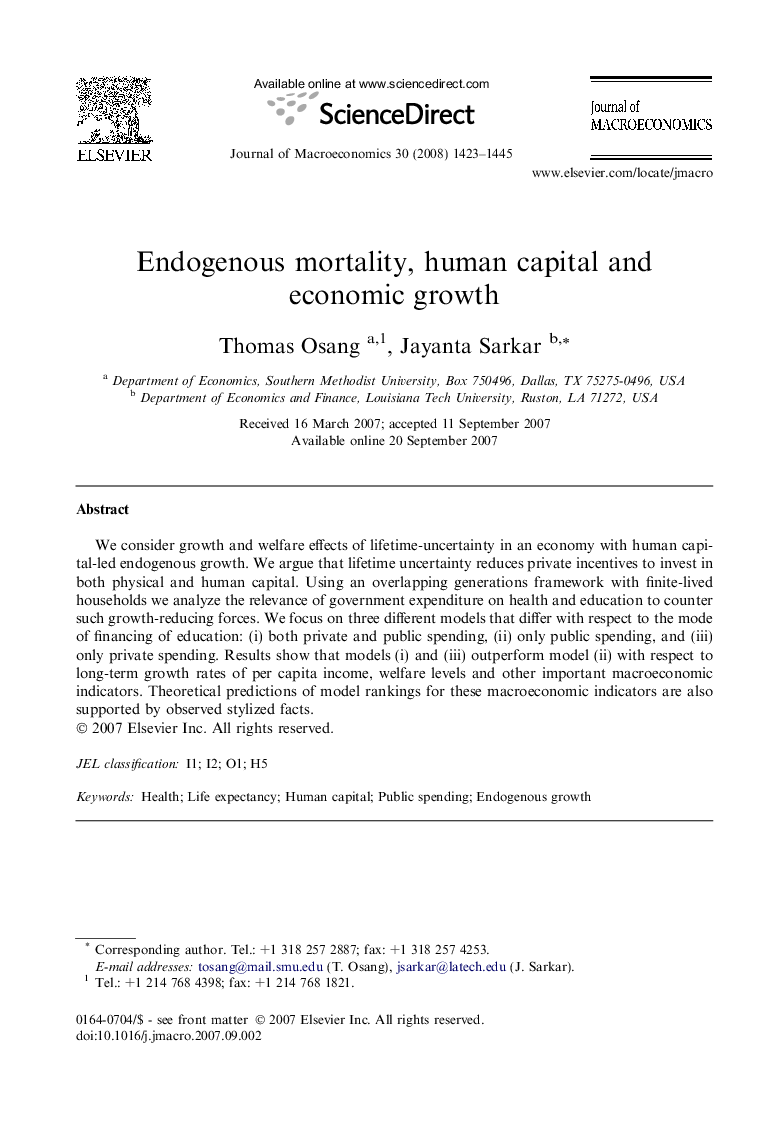| Article ID | Journal | Published Year | Pages | File Type |
|---|---|---|---|---|
| 966081 | Journal of Macroeconomics | 2008 | 23 Pages |
Abstract
We consider growth and welfare effects of lifetime-uncertainty in an economy with human capital-led endogenous growth. We argue that lifetime uncertainty reduces private incentives to invest in both physical and human capital. Using an overlapping generations framework with finite-lived households we analyze the relevance of government expenditure on health and education to counter such growth-reducing forces. We focus on three different models that differ with respect to the mode of financing of education: (i) both private and public spending, (ii) only public spending, and (iii) only private spending. Results show that models (i) and (iii) outperform model (ii) with respect to long-term growth rates of per capita income, welfare levels and other important macroeconomic indicators. Theoretical predictions of model rankings for these macroeconomic indicators are also supported by observed stylized facts.
Related Topics
Social Sciences and Humanities
Economics, Econometrics and Finance
Economics and Econometrics
Authors
Thomas Osang, Jayanta Sarkar,
